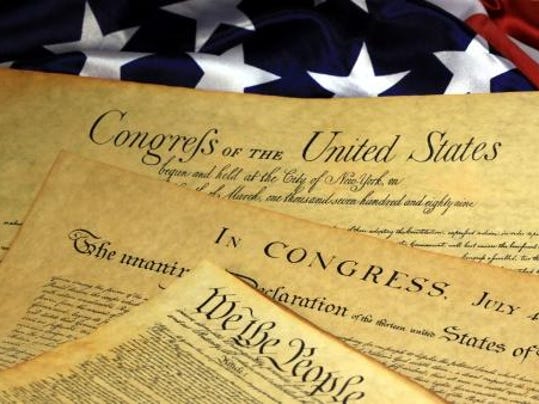It's hard to believe that high school students in South Dakota do not study the framing of the Constitution, the events preceding the Revolutionary War or anything of substance about the early days of the Civil War.
 But that's true, and it could continue that way since the state Board of Education declined to require the study of early American history in its newly adopted history standards. In this rewriting of 2006 standards, schools only are required to cover recent American history – events from the Civil War and beyond. Teachers are allowed to add lessons in early-American history, but they don't have to.
But that's true, and it could continue that way since the state Board of Education declined to require the study of early American history in its newly adopted history standards. In this rewriting of 2006 standards, schools only are required to cover recent American history – events from the Civil War and beyond. Teachers are allowed to add lessons in early-American history, but they don't have to.
We urge the board to step back and take another look at this.
Currently, early American history is being taught in middle school classes. But we agree with a coalition of college professors who say an eighth grade history lesson doesn't prepare a student for college-level course work.
The group of 18 college and university history professors from South Dakota schools lobbied the board to broaden the history requirement during nearly a year-long series of hearings on the proposed new standards.
They wrote a letter to the board of education detailing their concerns, beginning with the fact that students are not prepared for college level work in U.S. history courses and are challenged when asked to think historically.
Ben Jones, dean and associate professor of history at Dakota State University, has said he and his colleagues are "astounded by the level of ignorance" of U.S. history that they see in freshmen.
But there are other important reasons to teach high school students about our nation's early history.
Constitutional topics are common in today's political debate and students without a solid understanding and who do not have the appropriate level of context for these discussions are at a disadvantage. As citizens, we need to understand our rights and duties as well as appreciate how they came to be.
The Constitution is referenced in nearly every important election campaign. The separation of church and state, religious and press freedoms, the 2nd Amendment and gun rights are all popular political topics of our time. But without an understanding and appreciation of the early debates on these matters, young citizens are not able to accurately assess Constitutional protections and threats. Rhetoric and misinformation can easily fill the void.
Board of Education President Don Kirkegaard said last month that the decision not to require the early history instruction was a compromise that allows local school administrators and teachers to make the decision on what to include in history instruction.
But no compromise was needed here. History should be taught comprehensively, not fragmented by eras.
Recently, there was a national push to give every high school student the U.S. citizenship test to pass in order to graduate. The effort was championed by former U.S. Supreme Court Justice Sandra Day O'Connor and former New York mayor Rudy Giuliani.
South Dakota lawmakers embraced the notion but fell short of requiring the exam. They said students needed to learn the material before graduation but didn't have to take the test.
We should require more of our young people.
We think the college professors summarized it well, in urging the board to add early American history instruction to the first half of the 11th grade year, in addition to the 8th grade history lesson. They said the state should re-engage "the more mature student with increasingly complex material that builds upon their existing knowledge. By doing so, we hope that students will have greater success understanding their history and ultimately employing it as a citizen."

